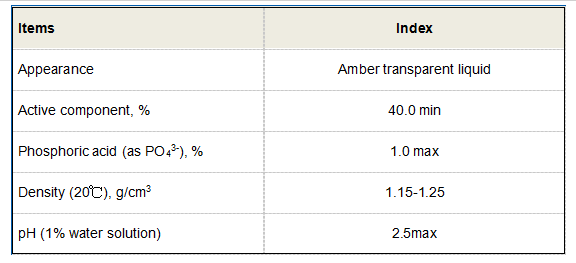Effective Scale Inhibitors for Cooling Tower Water Treatment Solutions
The Importance of Cooling Tower Scale Inhibitors in Industrial Applications
Cooling towers are essential components in a variety of industrial processes, providing efficient heat dissipation through evaporative cooling. However, the operation of cooling towers is often compromised by the formation of scale. Scale, primarily composed of mineral deposits such as calcium carbonate, magnesium, and silica, can accumulate within the system, leading to decreased heat exchange efficiency, increased energy consumption, and costly maintenance. To combat these issues, cooling tower scale inhibitors play a critical role in maintaining system efficiency and longevity.
Understanding Scale Formation
The formation of scale in cooling towers typically occurs when water dissolved with minerals is subjected to changes in temperature and pressure, promoting the precipitation of these minerals. As water evaporates, the concentration of these minerals increases, often exceeding their solubility limits. When the deposition of these minerals occurs faster than they can be removed, scale begins to form on the surfaces of heat exchange equipment and piping. Over time, this scale buildup can lead to significant operational issues, including reduced flow rates, increased pump loads, and even catastrophic equipment failures.
The Role of Scale Inhibitors
Scale inhibitors are chemical agents added to the cooling water to prevent or reduce scale formation. These inhibitors work through several mechanisms, including complexation, threshold inhibition, and surface adsorption. By interfering with the crystallization process of scale-forming minerals, these chemicals help maintain the minerals in a dissolved state, preventing them from forming harmful deposits.
Types of Scale Inhibitors
There are various types of scale inhibitors available, each designed to target specific minerals and scale types. Commonly used inhibitors include phosphate-based agents, polymeric dispersants, and organic inhibitors such as polyacrylic acid and polymaleic acid. The choice of scale inhibitor depends on factors such as water chemistry, system design, and operational conditions.
cooling tower scale inhibitor

Phosphate-based inhibitors are particularly effective against calcium carbonate and calcium phosphate scales. However, their use may be limited in systems seeking to avoid phosphorous discharge due to environmental regulations. Polymeric dispersants, on the other hand, offer a broad-spectrum approach, effectively managing various types of scale while promoting dispersion in the cooling water.
Benefits of Using Scale Inhibitors
Utilizing scale inhibitors in cooling towers offers numerous benefits. One of the most significant advantages is enhanced operational efficiency. By preventing scale buildup, cooling towers can maintain optimal heat transfer rates, ensuring that industrial processes run smoothly and efficiently. This translates into reduced energy consumption and lower operational costs.
Additionally, scale inhibitors help prolong the lifespan of cooling tower components. Regular maintenance and cleaning can be labor-intensive and expensive. By minimizing scale formation, the need for frequent maintenance is reduced, ultimately saving time and money in the long run.
Moreover, using scale inhibitors contributes to environmental sustainability. By improving the efficiency of cooling systems, industries can reduce their water and energy consumption, aligning with broader goals of resource conservation and waste reduction.
Conclusion
In summary, cooling tower scale inhibitors are vital for the efficient operation of industrial cooling systems. By preventing scale formation, these inhibitors enhance operational efficiency, extend equipment lifespan, and promote sustainability. As industries continue to prioritize performance and environmental responsibility, the role of cooling tower scale inhibitors will remain crucial for optimizing production and minimizing operational challenges. Investing in the right scale inhibition strategies will not only improve system reliability but also contribute significantly to overall operational success.
-
lk-319-special-scale-and-corrosion-inhibitor-for-steel-plants-advanced-solutions-for-industrial-water-systemsNewsAug.22,2025
-
flocculant-water-treatment-essential-chemical-solutions-for-purification-processesNewsAug.22,2025
-
isothiazolinones-versatile-microbial-control-agents-for-industrial-and-consumer-applicationsNewsAug.22,2025
-
scale-inhibitor-key-solutions-for-water-system-scale-preventionNewsAug.22,2025
-
organophosphonates-versatile-scale-inhibitors-for-industrial-water-systemsNewsAug.22,2025
-
scale-and-corrosion-inhibitor-essential-chemical-solutions-for-water-system-maintenanceNewsAug.22,2025





